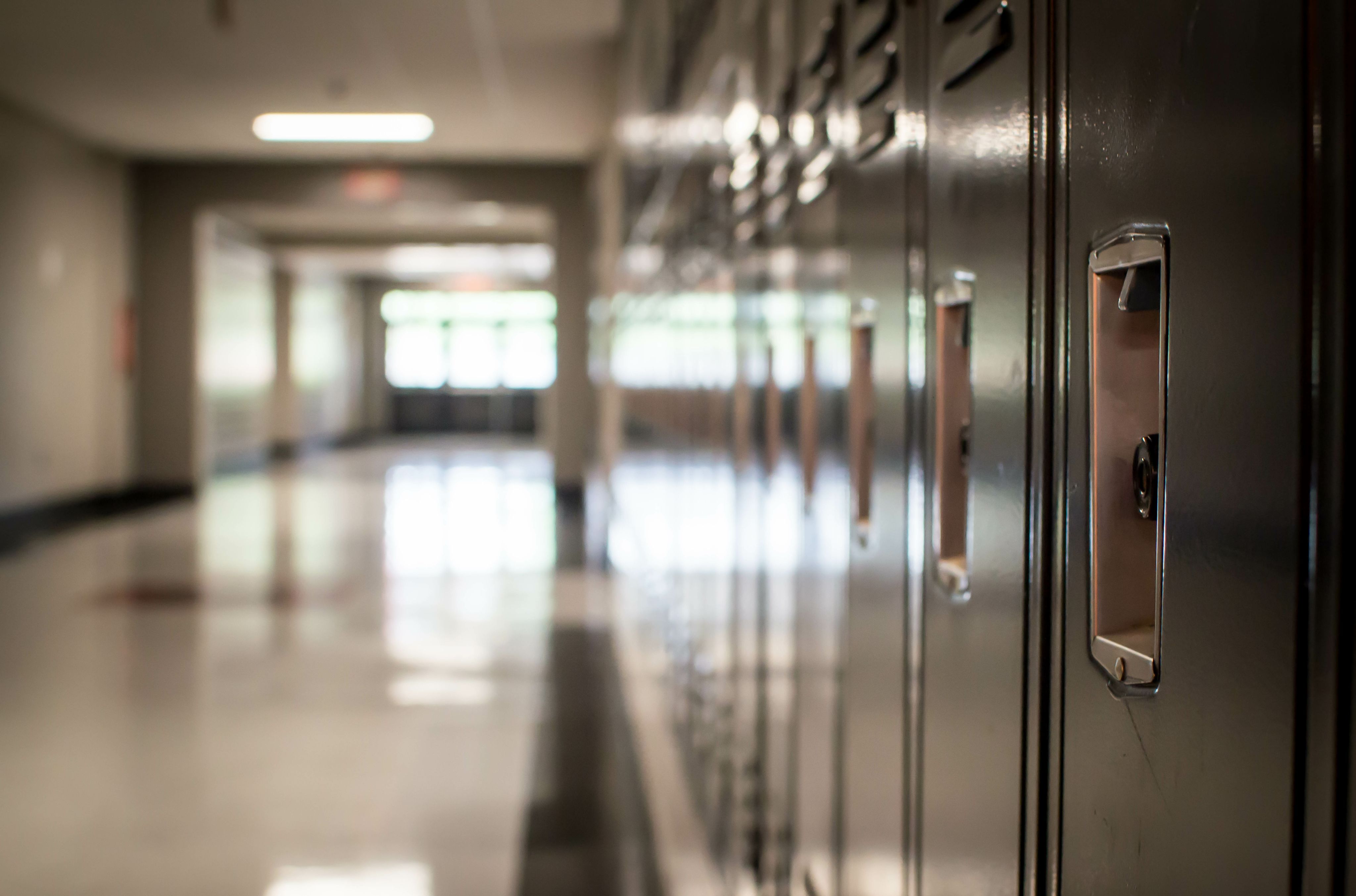The legislative newsletter of the Missouri State Teachers Association
MSTA Action: March 28, 2025

MSTA Digital Media Specialist Morgan Buresh outlines this week's Action in 60 seconds.
Listen to this week's Action as a podcast
We know life can be busy. That's why we've used Podera to create an AI-generated podcast that includes all of the information found in this week's Action.
Press play to give it a listen, or keep scrolling to read Action for yourself.
MSTA priority bill on student classroom behavior unanimously passes through committee
HB1287 (Lewis), also known as the “Missouri Educators and Parental Empowerment and Rights Act,” was voted out of the House Elementary and Secondary Education Committee on March 26 with unanimous support, passing 18-0.
Sponsored by Committee Chairman Rep. Ed Lewis (R-Moberly), the legislation outlines a “Parents’ Bill of Rights,” an “Educators’ Bill of Rights,” and requires school districts to adopt a “Code of Student Conduct,” marking a significant attempt to codify the roles and responsibilities of parents, teachers, and school districts in an increasingly complex educational landscape. MSTA worked closely with Lewis, Rep. Kathy Steinhoff (D-Columbia), and others to craft a bill that it believes will make a positive impact in public school classrooms.
“This is about affirming trust and respect in our classrooms,” Lewis said following the vote. “We want to empower parents with transparency and ensure that our educators are treated as the professionals they are.”
The proposed legislation aims to enhance teacher authority, promote safe learning environments, and increase parental involvement in education in three key ways:
- Parental Rights: This bill establishes a “Parents’ Bill of Rights” and reinforces parents’ existing rights to access instructional materials, classroom policies, and school budgets, emphasizing transparency and accountability in education.
- Teacher Authority: The bill introduces an “Educators’ Bill of Rights,” empowering teachers to maintain classroom discipline and remove disruptive students when necessary.
- Student Conduct: The bill mandates that school districts adopt a code of student conduct emphasizing respect for school authority, ethical responsibility, and community standards.
Bill sponsor Rep. Ed Lewis explains the purpose of HB1287.
Under HB1287 (Lewis), local school boards would be required to create policies supporting both sets of rights and to establish clearer lines of communication between schools, parents, and staff.
MSTA testified in favor of this important legislation, specifically focusing on the sections of the bill that relate to student behavior. MSTA knows educators are dedicated professionals committed to fostering safe, respectful, and productive learning environments. However, MSTA Member Survey responses show this is the top issue on educators’ minds when considering whether to stay in the classroom.
“Parents and educators need to come together and have the best product for our students,” Steinhoff said. “I appreciate that we have come together to find a bill that I think honors both in a collaborative way, and I am very pleased with the outcome of this.”
HB1287 (Lewis) now heads to the House floor for full debate. If passed, it will move to the Senate for consideration.
School safety bill advances
On March 27, the House of Representatives passed HB416 (Shields), a significant piece of legislation aimed at enhancing safety measures in public schools across the state. Sponsored by Rep. Brenda Shields (R-St. Joseph), the bill introduces several mandates designed to improve emergency preparedness and response in educational settings.
Key Provisions of HB416 (Shields) include:
- Emergency operations plans: School districts and charter schools are required to develop comprehensive emergency operations plans to address various crises and emergencies.
- Stop the Bleed Act: This act mandates the placement of bleeding control kits in schools and requires annual training for school personnel in trauma response techniques.
- Security infrastructure enhancements: Schools must equip interior doors with anti-intruder locks and apply bullet-resistant window film to exterior doors and entryways, contingent upon state funding.
- Training requirements: Designated school safety coordinators must complete specific incident command system training.
- Active shooter drills: Beginning with the 2026-27 school year, schools are mandated to conduct annual active shooter drills and provide age-appropriate training on threat-reporting mechanisms.
- Cell phone restrictions: An amendment concerning student cell phone use was added to the bill during debate. This amendment mandates that, starting with the 2026-27 school year, each school district and charter school governing board must adopt a written policy regulating students’ possession and use of electronic personal communication devices, such as cell phones. At a minimum, these policies are required to prohibit students from displaying or using such devices during regularly scheduled instructional time.
Shields emphasized the bill’s focus on creating safer learning environments through a combination of preventative and responsive measures. The legislation received bipartisan support, reflecting a shared commitment to student and staff safety.
HB416 (Shields) now advances to the Senate for further consideration. If enacted, the bill will require schools to implement these measures by specified deadlines, with certain provisions dependent on appropriations by the General Assembly.
Also relating to school safety, a Senate bill in the House Elementary and Secondary Education Committee, SB68 (Henderson), would require schools to report all school safety incidents and credible school safety threats to the Department of Elementary and Secondary Education (DESE). The legislation also includes language that restricts cell phones and similar electronic devices in schools. The bill was heard in committee, but no action has yet been taken.

House votes to extend teacher externships program
The House approved a noncontroversial bill that would extend a pilot program for teachers across the state. HB267 (Shields) would remove the expired sunset on a provision governing teacher externships. Certified Teacher Externships are a tool to provide educators with expanded opportunities to engage in a real-world learning experience with businesses and allow them to gain practical exposure in industries related to their teaching fields. Shields believes these experiences can enrich classroom instruction and better prepare students for the workforce.
MSTA supports this legislation, emphasizing the value of real-world experience for teachers and highlighting that externships can bridge the gap between academic concepts and practical application to enhance the quality of education students receive. Time spent in an externship can also serve as an approved Career Ladder activity.
Legislative committee updates
House Children and Families Committee
- HB1386 (Keathley) would expand the current recovery high school program to allow private schools to open recovery high schools. This bill was voted do pass.
House Emerging Issues Committee
- HB77 (Loy) would create a Missouri parental choice tax credit act. The tax credit could be used for private school tuition, fees, textbooks, or tutoring services and has an estimated cost of over $1 billion. MSTA testified in opposition of this bill.
- HB1446 (Phelps) would require school districts to notify parents if the school uses an online tutoring program in which the majority of the ownership is held outside of the United States.
House Elementary and Secondary Education Committee
- SB68 (Henderson) would require schools to report to DESE all school safety incidents and threats that occur. The bill also includes a prohibition on student cell phone use.
- HB1262 (J. Black) would require schools to post a statement relating to religious freedoms.
- HB1287 (Lewis) would create the Missouri Educators and Parental Empowerment and Rights Act. It was voted do pass with substitute.
- HB744 (Baker) was combined with HB1287 (Lewis) and voted do pass.
Senate Education Committee
- SB177 (Nurrenbern) would empower the State Board of Education to issue a certificate of need before opening additional charter schools in the state.
- SB364 (B. Brown) would allow districts to receive the additional state aid payment for attending a minimum of 169 days, even if the school attended fewer days due to inclement weather. MSTA testified in support of this legislation.
- SB594 (Burger) would require the Ten Commandments to be displayed in every school district and classroom.
Capitol Visits begin to wrap up
Capitol Visits continued this week with the Northeast and Central MSTA regions in Jefferson City. There is only one more MSTA Capitol Visit left, scheduled for Wednesday, April 9. This visit is for SMSTA members and also serves as a make-up day for any member who couldn't previously attend.
By attending a Capitol Visit, members have the chance to be briefed by MSTA lobbyists, meet with legislators, and advocate for students, fellow educators, and local communities.
Register for a Capitol Visit here.
What to do prior to your visit: Ask permission from your school administration to attend your assigned Capitol Visit as a PD opportunity. Gather input from your fellow MSTA members and school administration about issues impacting your district. It is also a good idea to schedule a meeting with your legislator prior to your visit.
What to wear: Business casual attire is appropriate. It is also encouraged to wear a shirt showcasing your district and comfortable shoes.
Where to go: Use the front entrance at the Capitol in Jefferson City. We will meet in the third floor rotunda East Alcove at 9 a.m. on the day of your visit.
What to say: Introduce yourself and your group members to your legislator. Highlight programs and address concerns regarding your district and profession.
MSTA in the news
Trump orders Department of Education shutdown: Missouri State Teachers Association reacts
Published by KHQA on March 25, 2025
















